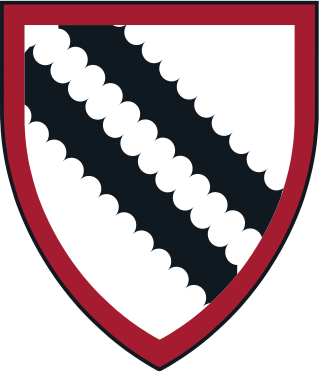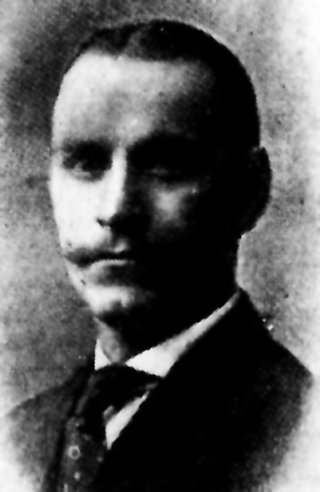
Barbara Wertheim Tuchman was an American historian, journalist and author. She won the Pulitzer Prize twice, for The Guns of August (1962), a best-selling history of the prelude to and the first month of World War I, and Stilwell and the American Experience in China (1971), a biography of General Joseph Stilwell.

Radcliffe College was a women's liberal arts college in Cambridge, Massachusetts, that was founded in 1879. In 1999, it was fully incorporated into Harvard College. The college was named for the early Harvard benefactor Lady Ann Mowlson.

Harvard College is the undergraduate college of Harvard University, a private Ivy League research university in Cambridge, Massachusetts, United States. Part of the Faculty of Arts and Sciences, Harvard College is Harvard University's traditional undergraduate program, offering AB and SB degrees. It is highly selective, with fewer than four percent of applicants being offered admission as of 2022.

The Harvard Crimson is the student newspaper of Harvard University and was founded in 1873. Run entirely by Harvard College undergraduates, it served for many years as the only daily newspaper in Cambridge, Massachusetts.

The Harvard Lampoon is an undergraduate humor publication founded in 1876 by seven undergraduates at Harvard University in Cambridge, Massachusetts.
Stanley King was the eleventh president of Amherst College. He held that position from 1932 to 1946.

Morristown Beard School is a coeducational, independent, college-preparatory day school located in Morristown, in Morris County, in the U.S. state of New Jersey. Serving students in sixth through twelfth grades, the school has two academic units: an Upper School (9-12) and a Middle School (6-8).

Pforzheimer House, nicknamed PfoHo (FOE-hoe) and formerly named North House, is one of twelve undergraduate residential Houses at Harvard University. It was named in 1995 for Carol K. and Carl Howard Pforzheimer Jr, major University and Radcliffe College benefactors, and their family.

The history of Harvard University begins in 1636, when Harvard College was founded in the young settlement of New Towne in Massachusetts, which had been settled in 1630. New Towne was organized as a town on the founding of the university, and changed its name two years later to Cambridge, Massachusetts, in honor of the city in England. It is the oldest institution of higher learning in the United States.

Catharine Drew Gilpin Faust is an American historian who served as the 28th president of Harvard University, the first woman in that role. She was Harvard's first president since 1672 without an undergraduate or graduate degree from Harvard and the first to have been raised in the South. Faust is also the founding dean of the Radcliffe Institute for Advanced Study. She has been ranked among the world's most powerful women by Forbes, including as the 33rd most powerful in 2014.

Harvard University is a private Ivy League research university in Cambridge, Massachusetts. Founded in 1636 as Harvard College and named for its first benefactor, Puritan clergyman John Harvard, it is the oldest institution of higher learning in the United States. Its influence, wealth, and rankings have made it one of the most prestigious universities in the world.

Dr. Robert Greenleaf Leavitt (1865–1942) was an early American Harvard-educated botanist and widely published author in the field of botany, as well as an early college and high school educator in the natural sciences. Leavitt also worked for nine years as a botanical researcher at the Ames Botanical Laboratory in North Easton, Massachusetts.

A'Lelia Perry Bundles is an American journalist, news producer and author, known for her 2001 biography of her great-great-grandmother Madam C. J. Walker.

John White Hallowell was a prominent American businessman and football player. He played college football at Harvard University and was a consensus All-American at the end position in both 1898 and 1900. Hallowell served in the U.S. Food Administration, and was chairman of the New England Committee for Supplementary Rations for Belgian Children during World War I. After the War, Hallowell served as assistant to the Secretary of the Interior, Franklin K. Lane.

Charles Robert Apted (1873–1941) was for 39 years a Harvard University official in various capacities, for much of that time chief of the Harvard Yard police ("Harvard Cop No. 1", the Boston Globe called him) and superintendent of Harvard buildings. His Boston Globe obituary called him "both feared and beloved by undergraduates during three university presidential administrations".

The Harvard Monthly was a literary magazine of Harvard University in Cambridge, Massachusetts, beginning October 1885 until suspending publication following the Spring 1917 issue.

Charles Warner Plummer (1890–1918) was a military aviator in the U.S. Army Air Service. Plummer defended the 88th Aero Squadron's aerial reconnaissance mission to photograph the Vesle River sector of France during World War I.

Ruth Holden was an American paleobotanist and nurse, who died in Russia during World War I.
The Caroline I. Wilby Prize was founded in 1897 in memory of Caroline I. Wilby, by her friends and former students. The prize is given annually to the student who has produced the best original work within any of the departments of Radcliffe College, Cambridge in Massachusetts. The prize is only awarded if a dissertation or thesis is considered worthy enough.
George Cabot Lee Jr. was an American banker from Boston. He was the brother of Alice Hathaway Lee, the first wife of President Theodore Roosevelt.
















